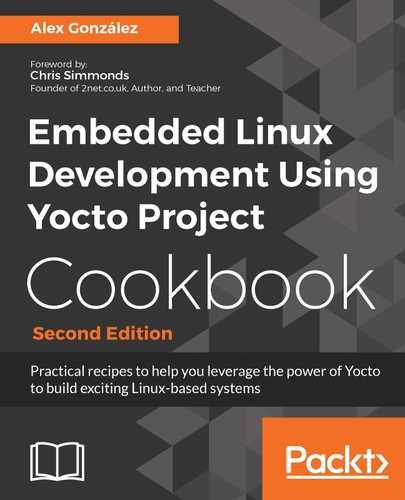The first thing we need to do is create a build directory for our project, where the build output will be generated. Sometimes, the build directory may be referred to as the project directory, but build directory is the appropriate Yocto term.
There is no right way to structure the build directories when you have multiple projects, but a good practice is to have one build directory per architecture or machine type. They can all share a common downloads folder, and even a shared state cache (this will be covered later on), so keeping them separate won't affect the build performance, but it will allow you to develop on multiple projects simultaneously.
To create a build directory, we use the oe-init-build-env script provided by Poky. The script needs to be sourced into your current shell, and it will set up your environment to use the OpenEmbedded/Yocto build system, including adding the BitBake utility to your path.
You can specify a build directory to use or it will use build by default. We will use qemuarm for this example:
$ cd /opt/yocto/poky $ source oe-init-build-env qemuarm
The script will change to the specified directory.
BitBake is designed with a client/server abstraction, so we can also start a persistent server and connect a client to it. To instruct a BitBake server to stay resident, configure a timeout in seconds in your build directory's conf/local.conf configuration file as follows:
BB_SERVER_TIMEOUT = "n"
With n being the time in seconds for BitBake to stay resident.
With this setup, loading cache and configuration information each time is avoided, which saves some overhead.
